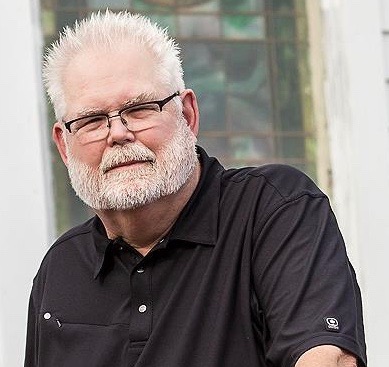Life can get wild and ministry can get crazy. When you don’t think things can get any busier, they can and they do. In my life I’ve learned ‘busy’ is a relative term. What one person calls busy is not busy to another. The fact is no matter how you define busy it causes you to be deal with pressure. Pressure can cause you to grow or it can also expose weakness in your abilities. Either way pressure is your friend. People are paid by how much pressure they can handle and deal with. If you want to make more money learn to handle more pressure and how to control crazy.
Jesus is our help and peace in stressful times. He is our help when life gets complicated, but it’s up to us to call on that help. He’s given us His word that he will help us here are just a few of the scriptures I stand on when life gets crazy for me. Psalm 46:1 says, “God is our refuge and strength, an ever present help in trouble.” John 14:27 tells us “Peace I leave with you; my peace I give you. I do not give to you as the world gives. Do not let your hearts be troubled and do not be afraid.” John 14:16 promises “And I will pray the Father, and He will give you another Helper, that He may abide with you forever-. That other helper is also referred to as another comforter. Jesus never leads you into something that will harm you. He is a safe guide His word always works. Jesus is the master of simplifying life. The laws of the Old Testament were many and complex yet Jesus made it very easy to follow them.
Let’s take a look at Matthew 22:36-40…
36“Teacher, which is the great commandment in the law?” 37Jesus said to him, “‘You shall love the Lord your God with all your heart, with all your soul, and with all your mind.’ ◙ 38This is the first and great commandment. 39And the second is like it: ‘You shall love your neighbor as yourself.’ ◙ 40On these two commandments hang all the Law and the Prophets.”
Jesus’ answers concerning life are always simple even though they may not always be easy to carry them out. These verses simplified the law but they are a fulltime job to carry out. Paul had a heart for following the Lord example. You can tell he patterned his life after the example of Jesus by writing in 2Corinthians 1:12 “For our rejoicing is this, the testimony of our conscience, that in simplicity and godly sincerity, not with fleshly wisdom, but by the grace of God, we have had our conversation in the world, and more abundantly to you-ward. The devil always tries to complicate life just like he complicated God’s simple instructions to Adam and Eve. He loves to complicate our lives by injecting wrong thoughts into our minds
2Corinthians 11:3 tells us “But I fear, lest by any means, as the serpent beguiled Eve through his subtlety, so your minds should be corrupted from the simplicity that is in Christ.”
We must choose to keep life simple! Sometimes our responsibilities and the pressures of life affects us all in a negative way. We have to choose simplicity. In Luke 10:38-42 we find the story of two sisters. Sisters who made two very different choices in how they reacted to Jesus coming to their home. The scriptures tell us “As Jesus and his disciples were on their way, He came to a village where a woman named Martha opened her home to Him. She had a sister called Mary, who sat at the Lord’s feet listening to what He said. But Martha was distracted by all the preparations that had to be made. She came to Him and asked, “Lord, don’t you care that my sister has left me to do the work by myself? Tell her to help me!” “Martha, Martha,” the Lord answered, “you are worried and upset about many things, but only one thing is needed. Mary has chosen what is better, and it will not be taken away from her.” The key to simplifying life for me is to be a student of learning better personal and time management. Have you read my book “Beat The Clock”? This resource has helped thousands of leaders learn some leadership and time-management basics. With this in mind here are 15 Steps in keeping life simple and controlling the crazy.
1. Set your priorities. This is something you have to get in the habit of doing daily. You can’t keep priorities if you don’t have priorities! Arrange your events, task and duties by priorities!
2. Keep your priorities in order. This is job one! The fact is priorities change. The order of your priorities may be different at different times. One of my favorite scriptures is Proverbs 28:2 “When a country is rebellious, it has many rulers, but a man of understanding and knowledge maintains order. This is you responsibility!
3. Delegate to others those things that they can do for you even if it’s short term. When you’re out of time the only way to get more is to use someone else’s. Make a list of everything you are doing that someone else can do and allow they to do it! Use checklists and job descriptions to get others to do it your way.
4. Use time saving tools. Some of the tools I use are my iPhone, iPad , a timer, iCal, voice mail, email, I even starting to use a program so others can choose an appointment so I don’t have to go back and forth with them and a laptop computer. But these tools can become time wasters if you use them wrong. Know when to talk not type, keep your notifications off when you are working on other things. Add a worker website, post videos and let blogs replace worker meetings.
5. Do more than one thing at a time. Take advantage of commute times and wait times to study, have meetings, people development, return messages, and make assignments to others by phone. Use meals to put into people. Ride together and set up with the meeting is about. I pay so we’ll talk about what I want to cover on the way back we wrap up and make assignments on what needs to be carried out. Take reading with you wherever you go as well as other work. (Here’s another reason I love my Iphone!)
6. Decide what can be postponed or eliminated. This goes back to your priorities. Keep those activities and events that are urgent or important on top. Don’t just look at the task look at the time it takes to pull it off also. Learn to say no! Learning to say no also means saying yes to right things. To say yes to urgent and important matters means you say no to less urgent or important things. When time is short look to focus on now and don’t look too far ahead.
7. Get creative with your family time. Take them with you whenever you can and combine family time with business and leisure activities. Call them and let them know you were thinking of them.
8. Schedule a break even if it’s only for a few hours. (Even convicts get time off for good behavior)
Some of my getaway places are playing guitar, going to the music store, Starbucks, the bicycle store and Best Buy.
9. Be open to change in your lifestyle (Different results require different actions)
Don’t despise change. It’s alright to do things differently. Guard your thoughts and your tongue
10. Do your homework and see what others do in hectic times. Check up on busy people – see what they are doing on facebook, or twitter. Network at conferences and also on sites like KidminCoach.com.
11. Stop and listen to Jesus. Make time for the Word. It your responsibility to stay refreshed spiritually.
Feed your spirit daily you feed you belly daily. If you can’t go to church, listen to the podcast or watch the livestream. But it will truly help you spiritually to go to church.
12. When you are tired and busy, don’t think. Rely on a checklist. Paper is for remembering, your brain is for thinking and dreaming. Have the information you need with you when you go to meetings including, flowcharts and other reports.
13. Don’t quit or make big decisions during busy and stressful times. Wait to make big decisions when things slow down. Also never make people decisions when time is limited. Slow down and think it through.
14. Develop a plan to make next year better the minute an event or activity is over. Learn from your experiences and the best time to do this is while it’s fresh on your mind. Start next year’s file now. Speaking of planning ahead go ahead and put next year’s date on the calendar as well as plan as far ahead as possible. Do you have 2017 planned yet? Smart leaders plan as far ahead as possible to keep life balanced. Get feedback from others to help you plan better. A smart person makes time to listen and learn. When it’s over, crash. Get some rest. Always schedule a break between big pushes and events. Watch out for too many irons in the fire.
15. Do more by doing less. Focus on the main thing! Are you doing what only you should be doing, or are you doing things that someone else can do? It’s time to evaluate and ask yourself if you are focusing on the main thing.
To keep life simple and control the crazy, you must evaluate constantly. Measure your progress including your fruit, gains, loses and efficiency. Listen to your spouse on what should you discontinue, change and/or add. Things naturally get complex on their own that’s why you have to be intentional to keep life simple. Get out that calendar and make a plan to make you, your family and your ministry better.





